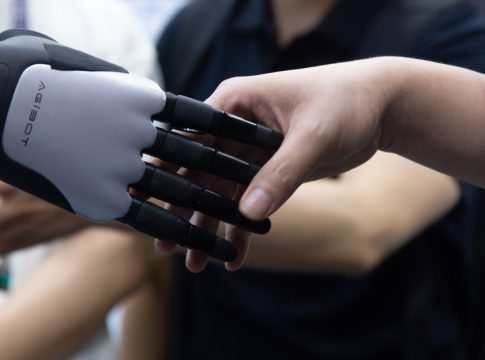The Evolving Debate on AI: Reasoning or Mimicry?
In 2023, a prevailing sentiment about artificial intelligence (AI) was that while it could churn out impressive text, it lacked genuine reasoning capabilities. Critics dubbed AI models “stochastic parrots,” suggesting they merely mimic patterns without true understanding. Fast forward to 2025, and this stance persists, particularly among scholars in fields like linguistics and philosophy, despite significant advancements in the technology.
The Apple Paper: A Catalyst for Skepticism
A recent paper released by Apple reignited the skepticism surrounding AI. Although it acknowledged improvements in AI performance on moderate tasks, much of the discussion hinged on its assertion that current AI models contain "a fundamental scaling limitation in reasoning." This prompted a wave of online commentary and videos, reinforcing the narrative that generative AI isn’t capable of evolving beyond simple mimicry.
The crux of the paper points to AI’s struggles with complex reasoning tasks, asserting that AI models fail to develop planning and problem-solving skills as task complexity increases. However, a closer look reveals that these failures often result from the specific formats the AI is required to use, rather than a fundamental inability to reason. This discrepancy raises important questions about how we assess AI’s capabilities.
Changing Perceptions: From Philosophical to Practical Concerns
While philosophical debates about AI’s cognitive abilities are intriguing, the pressing concern for many—especially those in the workforce—is its impact on jobs. With technologies advancing rapidly, the specter of job displacement looms large. Numerous industries are already observing shifts: entry-level roles in fields like law, once thought safe, are beginning to contract as AI systems automate tasks traditionally performed by humans.
The Impact on Employment
Many professionals, including journalists and creatives, are beginning to experience firsthand how AI could replace their roles. The optimistic narrative suggests that while AI may eliminate certain jobs, it will also create new opportunities. However, this transition can be disruptive and leaves many wondering what skills will be valuable in the future.
- Job Automation: Many entry-level positions are already at risk due to AI capabilities.
- Skill Shifts: Individuals may find the skills they’ve honed become obsolete.
Rethinking Criticism: The Importance of Staying Current
Critics who cling to outdated views of AI may do a disservice to public discourse. As Cambridge AI philosopher Harry Law notes, many critiques reflect a disconnect from reality; they focus on limitations that no longer apply. The urgency lies not in arguing whether AI can truly reason but in understanding its growing ability to reshape industries.
The conversation surrounding AI should prioritize practical implications over philosophical musings. As AI continues to improve and integrate into daily business operations, it’s crucial to ask what it can achieve when effectively utilized, rather than simply focusing on its limitations.
Takeaway: Adapting to Change
In this rapidly evolving landscape, it’s essential for academics and professionals to engage constructively with AI developments. As we debate the intelligence of these machines, the reality is that they are already influencing our work lives—whether or not they "truly reason." Acknowledging AI’s capabilities—and limitations—will help society navigate the challenges ahead. As we continue to explore the implications of AI, adapting swiftly may be the key to thriving in a transformed workforce.

Writes about personal finance, side hustles, gadgets, and tech innovation.
Bio: Priya specializes in making complex financial and tech topics easy to digest, with experience in fintech and consumer reviews.

